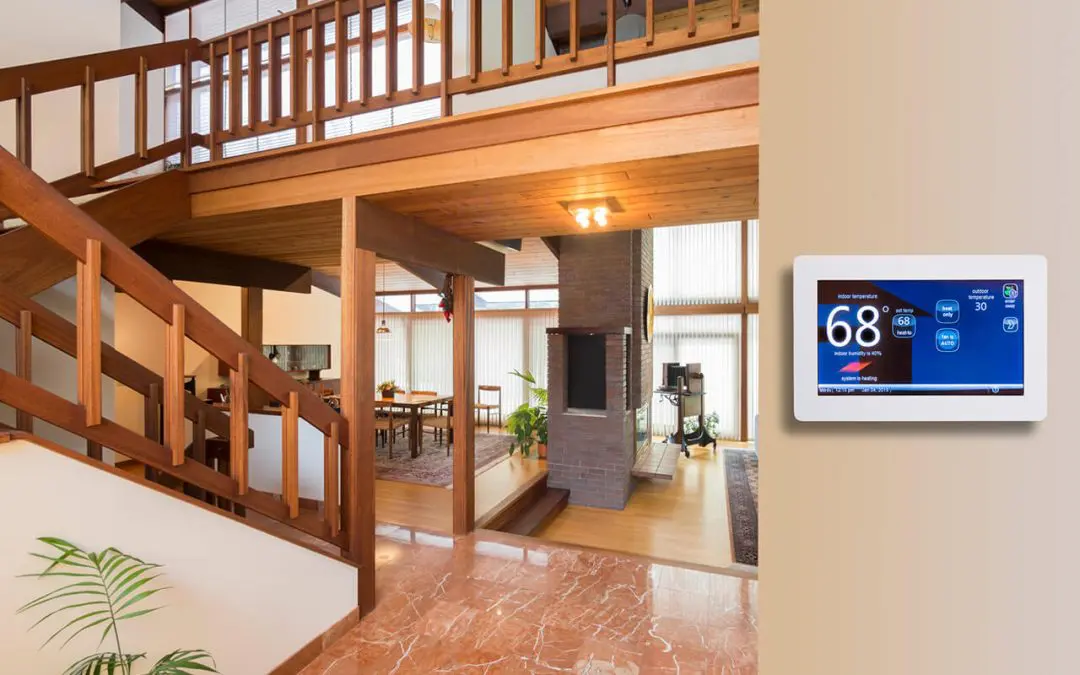Living in a region with freezing temperatures during the winter can strain your wallet when heating your home. Fortunately, there are practical steps to improve your home’s insulation and energy efficiency, leading to savings on utility bills. Here are a few helpful tips on how to keep your home warm and reduce heating costs.
Tips to Reduce Your Heating Costs This Winter
1. Seal the Gaps
Gaps, cracks, and crevices around windows and doors result in heat loss. Inspect your home for drafts. Use weatherstripping or caulk to seal air leaks and make your home’s doors and windows more energy-efficient.
2. Upgrade to Energy-Efficient Windows and Doors
Old, inefficient windows and doors are often a reason for heat loss and costly utility bills. Upgrade to energy-efficient options with a high EnergyStar rating. New windows and an insulated door will significantly improve your home’s insulation, reducing the workload on your heating system.
3. Insulate the Attic to Reduce Heating Costs
A well-insulated attic is crucial for maintaining a warm home. Insulation in the attic prevents warm air from escaping through the roof. Make sure the attic has the recommended amount of insulation for your climate zone. Insulation is a smart investment in your home’s efficiency.
4. Address Wall Insulation
Adding or upgrading insulation in your home’s walls often requires professional help, but it’s worth the expense. Depending on your budget and specific needs, choose from various insulation materials like fiberglass, cellulose, or foam board.
5. Reduce Heating Costs: Insulate the Basement
Basements contribute to heat loss if not properly insulated. In unfinished basements, insulate the walls to prevent heat from escaping. For finished basements, insulate the ceiling to help maintain a comfortable temperature. Insulated basement walls also avoid issues of moisture and mold growth.
6. Regular HVAC Maintenance to Reduce Heating Costs
Your heating system plays a significant role in keeping your house warm during winter. Keep the system well-maintained by replacing air filters regularly and scheduling annual check-ups. A properly functioning HVAC system keeps your home comfortable, operates more efficiently, and has a longer life expectancy.
7. Upgrade to a Programmable Thermostat
A programmable thermostat allows you to set a schedule for heating. Lower the temperature when you’re away or asleep, and warm the living spaces again just before you arrive home.
8. Consider Zoning Systems to Heat Your Home
Zoning systems allow you to heat specific areas of the house independently. If there are rooms you don’t use often or prefer different temperatures in different areas, a zoning system helps you conserve energy and money.
9. Take Advantage of Natural Heat to Reduce Heating Costs
Open your curtains or blinds on sunny winter days to allow the sun’s heat to warm your living spaces. Sunlight will raise the temperature in your home and reduce the need to run the furnace.
10. Adjust the Thermostat
Lowering the thermostat even a few degrees will make a noticeable difference in your heating bills. Dress warmly and use blankets when watching television or reading to stay comfortable at a slightly lower temperature.
Following these tips, you can enjoy a warm, comfortable home during the winter while keeping heating costs in check. Small changes lead to substantial savings, and a well-insulated home is your best defense against high heating bills. Start implementing these strategies and stay warm while saving money.
MN Pro Home Inspections offers inspection services to homebuyers and sellers in the Twin Cities and Western Wisconsin. Contact us to request an appointment.

